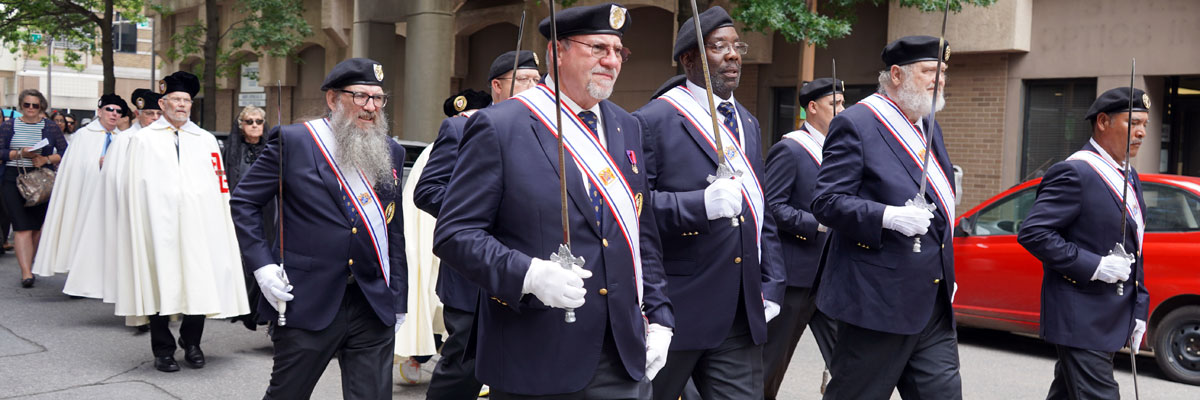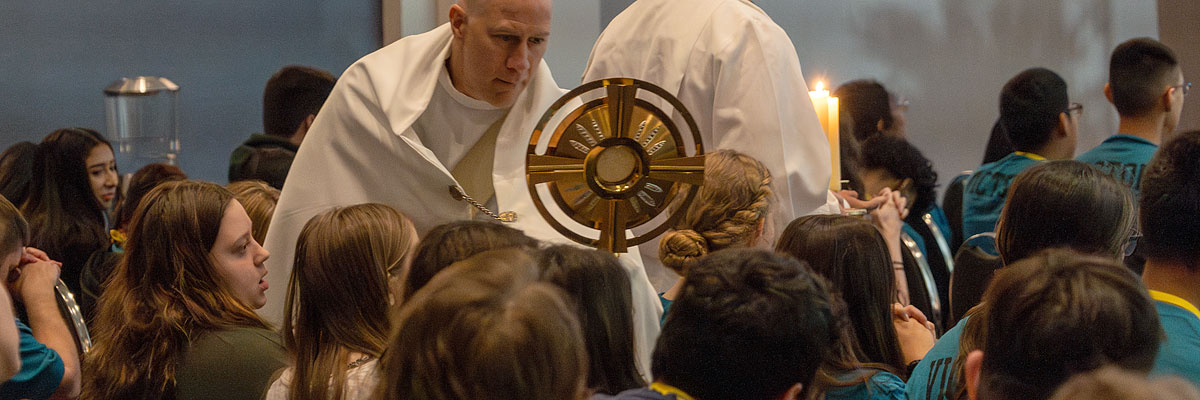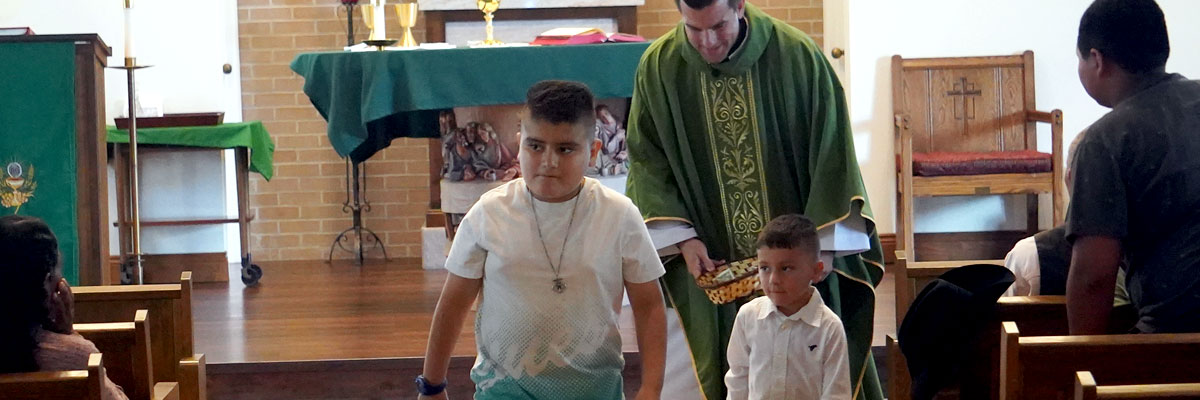Official Website of the
Catholic Diocese of Little Rock
Third Sunday of Easter, Year B
Published: April 19, 2015
Bishop Anthony B. Taylor preached the following homily during confirmation Masses at Christ the King Church in Fort Smith on Saturday, April 18, 2015, and Immaculate Heart of Mary Church in Marche and Holy Redeemer Church in Clarksville on Sunday, April 19, 2015.

Bishop Taylor
Many of you know the answer to this question: "Why did God make you?" "To know him, love him and serve him in this life, and to be happy with him forever in the next." But that raises another question: how to get to know God?
We get to know everything else through our five senses, but we can't see God — at least not directly. We can't hear him, smell him, feel him or taste him, at least not in a way that would convince those who do not already believe. In Jesus' time there were three basic approaches to attaining knowledge of God, all of which continue to be pursued by some people today, but only one of which really works.
Intellect — The ancient Greek philosophers were convinced they could arrive at knowledge of God through intellectual reasoning, but while they could use logic to deduce things about God — mainly about what God wasn't — they were unable to get out of their own heads enough to actually get to know him. One practical result was that their theoretical conclusions about God did not necessarily have any meaningful impact on how they actually lived their lives. Indeed, some of the most famous Greek philosophers were not especially good men. At least not from a moral perspective. And the same is sometimes true with intellectuals — with people who only live out of their heads — today.
If it doesn't lead us to obedience, to the doing of God's will, then it is not knowledge at all — no matter how eloquently we philosophize or how intensely we feel.
Emotions — Others thought they could arrive at knowledge of God through feelings, rather than through their intellect. There were exotic cults in the ancient world that sought to find God through highly charged dramatizations of the myths of the pagan gods designed to produce intoxicatingly powerful feelings of personal identification with these gods. But these emotional highs were always transitory, and as much as these experiences of emotional ecstasy enabled the participants to escape from their ordinary lives for a little while, they didn't lead to any genuine knowledge of God either. Indeed, sometimes these awakened unruly passions that led people away from God. And the same is sometimes true for people who live mainly out of their feelings today — and not just people who get involved with unusual cults.
Revelation — And then there was the Jewish — and later, Christian — realization that knowledge of God comes not through human speculation or exotic experiences, but only through God's own self-revelation. Intellect can help us understand God's revelation better: We call that theology. And emotions can help us embrace God's revelation more fully: We call that fervor. But the foundation, the door to all the rest, is God's own self-disclosure. We see this, for instance, in today's Gospel when Jesus appeared to his disciples to reveal the reality of his bodily resurrection, saying: "Touch me and see, because a ghost does not have flesh and blood as you see I have." Then he opened their minds to understand the Scriptures, teaching them what they could not have deduced intellectually or discovered otherwise had he not revealed it to them.
And as we see throughout Scripture, God not only reveals himself to be holy, his holiness obliges those who worship him to be holy too. True knowledge of God has, out of necessity, a powerful impact on how we live our lives. If it doesn't lead us to obedience, to the doing of God's will, then it is not knowledge at all — no matter how eloquently we philosophize or how intensely we feel.
As John writes in our second reading today: "The way we can be sure that we know him is to keep his commandments. Those who say, 'I know him' but do not keep his commandments are liars, and the truth is not in him. But whoever keeps his word, the love of God is truly perfected in him." Know him, love him and serve him!









